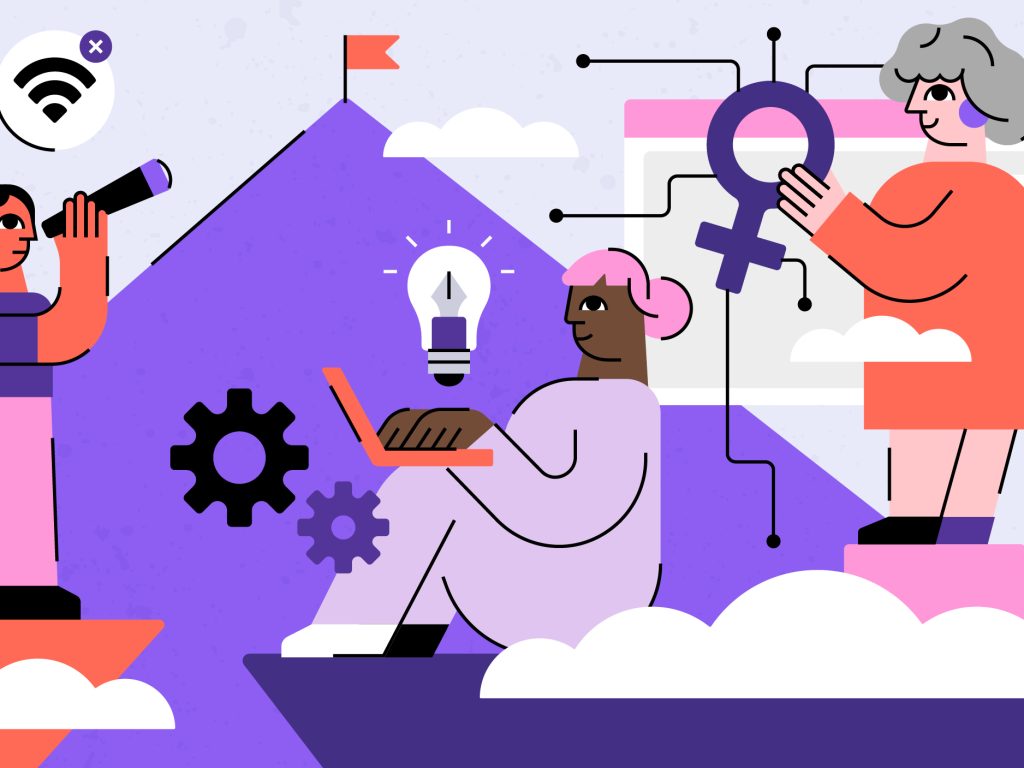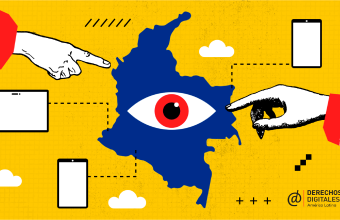The 67th Commission on the Status of Women (CSW67) began its work this week. The CSW is a United Nations-sponsored body that aims to advance towards the “equality and empowerment of women”.
This year, the Commission has as its priority theme “Innovation and technological change, and education in the digital age to achieve gender equality and the empowerment of all women and girls”. The theme offers many possibilities to advance urgently needed agreements on how digital technologies can effectively promote gender equality.
It also represents an opportunity to reinforce guidelines to establish necessary limits so that these technologies do not deepen inequalities. However, colonialism, punitivism and technological determinism may represent significant barriers to reaching meaningful conclusions. Worse than that: added to the absence of an intersectional and human rights perspective, they may imply setbacks in consensuses that have been emerging for decades at the international level.
Derechos Digitales has been an active participant in the discussions: in October 2022 we co-chaired an expert meeting held in preparation for the CSW and we are now actively participating in the official and parallel activities throughout the meeting in New York.
In this post we share some impressions and priorities that we believe should be considered in the discussions, based on a careful review of the initial draft conclusions of the CSW67.
A rights-based perspective to counter technological determinism
Although we can affirm that international law has made progress in understanding that human rights norms and their application must accompany technological transformation, in practice we see little commitment to implement such consensus. As a result, social and gender gaps widen and deepen. The Latin American case reflects how structural inequalities are replicated in the technological environment and groups historically excluded from access to rights not only face similar barriers to their access and use of technologies, but are subject to new and more complex forms of violence, exploitation and exclusion.
Cases such as that of Belén Whittingslow in Paraguay and those of the workers at cleaning applications are crude examples of the injustices that intensify around these issues. In the second case, they also show how these are automated in the form of algorithmic codes.
The massive or targeted surveillance of journalists, human rights defenders and feminist groups are another evidence of how authoritarian practices of persecution, criminalization and silencing of women are refined with the support of new surveillance technologies in the region.
In the face of growing evidence of abuses and rights violations facilitated by technologies in recent decades, the international community has been forced to overcome the myth of the “independence of the cyberspace” and recognize the implications of digital technologies for human rights. It is essential that the governments gathered at the CSW67 build their conclusions on the notion, hard-tested in the lived experience of millions of people, that technology will not solve structural problems such as those related to the fact that certain populations have been historically marginalized from access to rights in their entirety.
Besides concrete commitments to guaranteeing an effective diversity within the tech production and innovation ecosystems and incentives to the development of technologies that are aligned with the respect and the protection of human rights, States need to guarantee a meaningful access to the internet for all and that the same rights that they have offline are applied online. Measures should be adopted to limit and regulate the development and use of technologies with discriminatory and abusive potential in relation to human rights.
Approaching innovation, technological change and digital education from a human rights perspective, recognizing existing frameworks on the matter, is crucial if these are to play a role in achieving gender equity. Any other recommendation may increase gender gaps, endorse authoritarian practices and roll back hard-won international consensus.
Combating gender-based violence and censorship beyond criminalization and paternalism
We know that technology-facilitated gender-based violence is on the rise, and generates multiple and profound individual and collective impacts as it implies a form of gender censorship.
In Latin America, violence manifested in the online environment is a harsh reflection of societies marked by patriarchy, misogyny and homophobia and an extension of multiple gender-based violences experienced in the domestic sphere and public spaces.
Gender-based political violence, on the other hand, has represented an additional barrier to the participation of women and LGBTQIA+ people in power and decision-making spaces. Along with violence against journalists who defend human rights, it is often perpetrated by public officials and authorities, as has been observed in the cases of Brazil, El Salvador and Mexico.
There is an urgent need to develop public policies that respond to such forms of violence, hold those who promote it accountable – including public authorities – and establish effective mechanisms for reparation. Criminal law responses may be necessary, but they are not sufficient to address the complexity of the problem and the diversity of survivors’ life experiences.
Cybercrime measures promoted without a human rights perspective can lead to the criminalization of innocent people and setbacks in terms of access to rights. The three-part test and criteria of legality, necessity and proportionality should be considered in any policy or action aimed at restricting content in order to avoid the criminalization and censorship of legitimate expression, including those of women and LGBTQIA+ activists.
It is fundamental that the CSW can encourage the development of common concepts and human rights-based frameworks to respond to all forms of gender-based violence, including those mediated by technologies.
Towards a digital transformation based on autonomy
Gender equity can never be used as an argument for the implementation of digital systems without attending to human rights criteria, as we have observed again in the Latin American case.
Many of the initiatives for the use of Artificial Intelligence (AI) in the public sector in the region are directed to vulnerable groups who end up exposed to the collection of their data without the capacity to offer consent and effective protection mechanisms or access to justice.
In addition to the guarantee of basic rights to the protection of their personal data – with special safeguards for children – women and LGBTQIA+ people must have effective mechanisms to participate in decisions about the development and use of systems with the potential to affect their well-being.
As indicated in the Unesco Recommendation on the Ethics of Artificial Intelligence, adopted by 193 countries, States must adopt effective measures for carrying out human rights impact assessments to the development and implementation of this type of technology. Special attention should be given to their implications on economic and social rights and their potential impact on vulnerable groups. Such assessments should effectively inform decision-making on the development and adoption of AI and automated decision making systems, with the establishment of strict limits on those that do not meet minimum criteria – as recommended by the former United Nations High Commissioner for Human Rights, Michelle Bachelet.
No innovation can be built on the basis of rights violations, exploitation and the widening of gender gaps and injustices. Tech companies must fulfill their responsibility to respect and protect human rights, and States must take proactive steps to develop frameworks of their transparency and accountability.
Advancing to an innovation capable of transforming gender structures
It is well known that technologies are not neutral and that they do not carry within themselves the power to transform social realities. Any opposite perspective ignores that inequalities and injustices are each day more embodied and automated in cruel algorithmic codes. Not only that: geopolitical gaps related to technological development – with large technology companies mostly concentrated in a few countries of the Global North – reproduce structures of extraction and exploitation that take us back to the colonial context.
There is evidence from different sources and perspectives of how technologies developed under a commercial logic based on surveillance not only do not contribute to overcoming gender gaps, but deepen them. Changing this implies adopting concrete and proactive measures to promote innovation that is not only responsible, but also committed to gender justice.
This includes making effective progress towards overcoming gender gaps beyond the digital sphere. And also to establish serious policies for inclusion and participation that are cross-cutting and gender-sensitive, recognizing the existing advances and agreements related to digital governance from multiple stakeholders.
There are countless initiatives of feminist technological production in the Global South designed to contribute to greater equity and justice. It is urgent that the governments gathered at CSW67 incorporate critical looks to their techno-solutionist lenses and adopt measures to encourage the development and sustainability of such alternative ways of thinking and building technologies.

 Desafíos globales
Desafíos globales Transformación digital
Transformación digital Colombia
Colombia